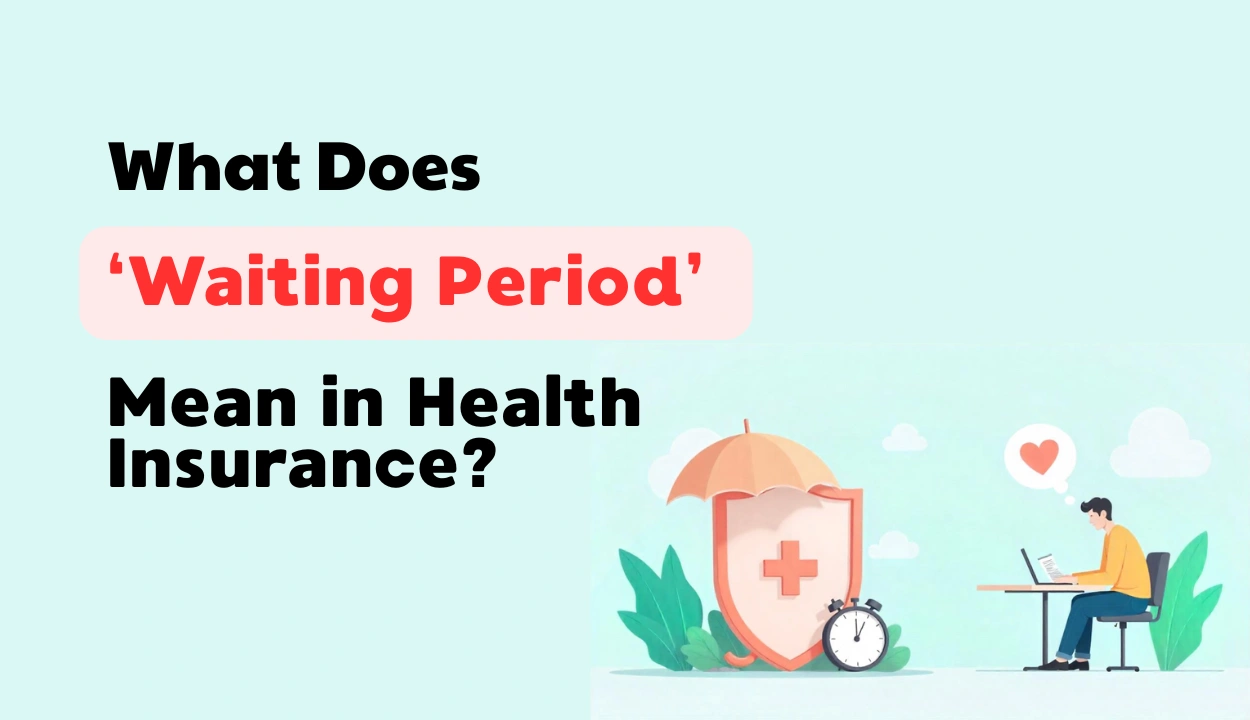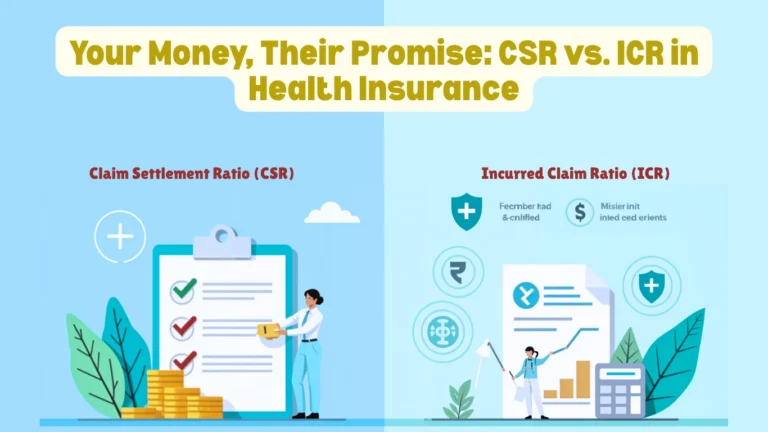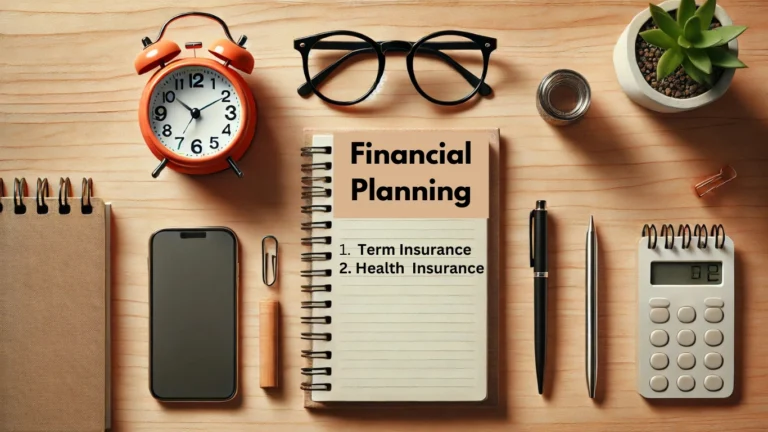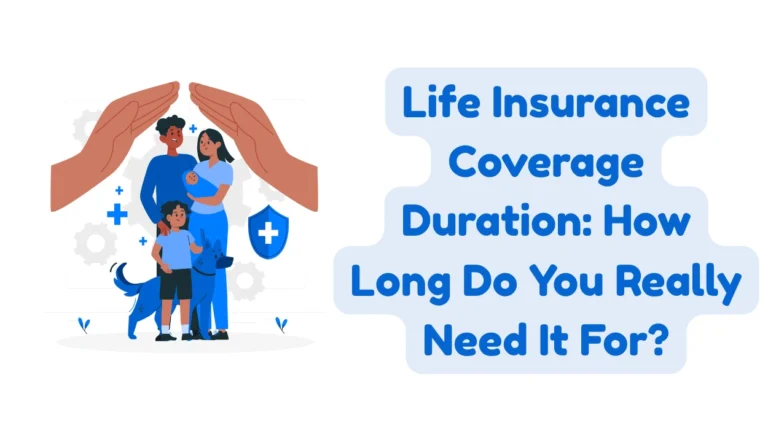Waiting Period in Health Insurance: Your Easy Guide to No More Surprises!
Hey there! So you’re thinking about health insurance, or maybe you already have a policy. Awesome! It’s one of the smartest things you can do for your money and your peace of mind. But here’s a little secret that often catches people off guard: it’s called a Waiting Period in Health Insurance.
Imagine this: you’ve just bought a brand-new phone. You can’t instantly use all its fancy features, right? Maybe some apps need to download first, or you need to set up your account. A waiting period in health insurance is kind of like that. It’s a specific amount of time after you buy your policy when your insurance company says, “Hold on a sec! We can’t cover everything just yet.”
Yep, even if you’re paying your premiums, there are certain things your policy won’t pay for until this waiting time is over. “Why?!” you might shout. Well, it’s actually super important to keep insurance fair for everyone and make sure it stays affordable. So, let’s break down these waiting periods in simple terms. No more confusion, just clear info so you’re always in the know!
What’s This “Waiting Period” Thing, Really?
Think of it this way: Health insurance isn’t something you buy only when you’re already sick and need an expensive surgery tomorrow. If everyone did that, insurance companies would quickly run out of money, and then none of us could afford health insurance!
So, a Waiting Period in Health Insurance is just a set amount of time (like a few weeks, months, or even a couple of years) that starts from the day your policy officially begins. During this time, your insurance won’t pay for certain kinds of medical claims. It’s the insurance company’s way of making sure you’re buying health coverage for the future and not just because you have an immediate, known medical need.
Also Read :- Key Factors to Check Before Filing a Health Insurance Claim
The Different Kinds of Waiting Periods You’ll See
Just like there are different types of snacks, there are different types of waiting periods in health insurance. Each one has its own rules and reasons. Let’s explore them!
1. The “First Few Weeks” Rule: Initial Waiting Period
This is the very first hurdle your policy has to clear.
- How long? Usually, it’s 30 days from the day your policy starts.
- What’s covered (or not)? During these 30 days, your policy generally won’t cover any illnesses that land you in the hospital.
- Any exceptions? Yes! The good news is that if you get into an accident and need to be hospitalized, your policy will usually cover you right from day one. Accidents are unpredictable, so they don’t make you wait.
- Why does it exist? It stops people from buying insurance only after they’ve fallen sick. It keeps things fair for everyone else.
2. The “Stuff You Already Had” Rule: Pre-Existing Disease (PED) Waiting Period
This one is super important, especially if you have any ongoing health conditions.
- What’s a PED? These are any illnesses, conditions, or injuries you already had, or were diagnosed with, before you bought your health insurance policy. Common ones include diabetes, high blood pressure, asthma, etc.
- How long? Big news here! Our insurance regulator (IRDAI) made a cool change in April 2024. They cut down the longest waiting period for pre-existing diseases from 4 years to just 3 years. Some plans might even have shorter waits!
- What does it mean? If you have a PED, your insurance won’t pay for any treatment related to that specific condition until this waiting period is finished.
- Why does it exist? It’s all about fairness. Imagine someone with a known, expensive chronic illness buying insurance today and expecting it to pay for all their ongoing treatments tomorrow. That would quickly make insurance unaffordable for everyone else. This period encourages early planning.
3. The “Certain Treatments Need Time” Rule: Specific Diseases/Procedures Waiting Period
This applies to a list of common, but often not emergency, medical issues or procedures.
- What kind of things? Think about operations like:
- Cataracts (eye surgery)
- Hernia operations
- Varicose veins (those swollen leg veins)
- Joint replacement surgeries (like knee or hip replacements)
- Some specific mental health conditions
- Weight loss surgery (bariatric surgery)
- And other conditions listed by your insurer.
- How long? These usually have a waiting period of 1 to 2 years. Some might even go up to 3 years.
- Why does it exist? Similar to PEDs, this prevents people from getting insurance just to cover a planned or very common procedure immediately after buying the policy.
Also Read :- No Claim Bonus in Health Insurance: The Hidden Truth You Need to Know
4. The “Baby Planning” Rule: Maternity Benefits Waiting Period
If you’re planning to expand your family, pay close attention here!
- What does it cover? Costs for pregnancy, childbirth (whether it’s normal or C-section), and sometimes even the baby’s first few days of care.
- How long? This one can be quite long, ranging from 9 months to a full 4 years, depending on your insurance company and the plan you choose. So, if you want your insurance to cover baby-related costs, you really need to buy this benefit well in advance.
- Good to know: If your workplace provides group health insurance, these plans often have much shorter (or even no) waiting periods for maternity, which is a huge bonus!
5. The “Really Serious Sickness” Rule: Critical Illness Waiting Period
If your health policy includes an extra benefit for “critical illness” (which gives you a lump sum if you’re diagnosed with something super serious like cancer or a heart attack), this waiting period applies.
- How long? Usually, there are two parts:
- An initial 90-day waiting period: You can’t be diagnosed with one of these serious illnesses within the first 90 days of getting this cover.
- A 30-day survival period: After you’re diagnosed, you need to survive for at least 30 days for the claim to be paid out.
- Why does it exist? It ensures that the critical illness cover is for truly unexpected diagnoses and not for conditions that might have been developing or were known about.
6. The “Oops, That Happened Fast!” Rule: Accidental Hospitalization
This is the easiest one to remember!
- How long? No waiting period at all! If you have an accident and need to go to the hospital, your coverage starts from day one.
- Why? Accidents are sudden and unpredictable. They don’t make you wait!
Also Read :- Unlocking Health Insurance Tax Savings: Your Easy Guide to Section 80D
Why These Waiting Periods Are Actually Good For You (Yes, Really!)
You might think waiting periods are annoying, but they serve some important purposes that actually benefit all of us policyholders:
- Stops Cheaters, Keeps Prices Fair: Imagine if people could just buy insurance the moment they got sick with a big illness. They’d use up a lot of money from the “insurance pot.” To make up for that, premiums for everyone else would have to go way up! Waiting periods prevent this, helping to keep your premiums from skyrocketing.
- Makes Insurance Affordable: Because insurers can manage their risks better (thanks to these waiting periods), they can offer health insurance at prices that most people can afford. Without them, it would be a luxury few could access.
- Encourages Smart Planning: Waiting periods gently nudge you to think ahead. If you know you might need a certain surgery someday, or if you’re planning a family, you’ll be encouraged to get your policy well in advance. This helps you stay continuously covered and use insurance as a long-term safety net, not just a last-minute fix.
Handy Tips and What Else to Know!
- Workplace Health Insurance (Group Plans): If your job provides health insurance, this is often a fantastic benefit! These group plans usually have much shorter waiting periods, or sometimes even none at all, especially for things like pre-existing diseases and maternity. Plus, if you leave your job, some plans even let you continue your coverage individually, and the time you already waited with the group plan might count towards your new policy’s waiting periods!
- Buying Your Way Out (Sometimes!): Some insurance companies offer special add-ons (you pay a bit extra for them) that can help reduce or even completely remove certain waiting periods, especially for pre-existing diseases. If you have a specific need, this might be something to look into.
- Good News from the Regulator! Remember that IRDAI change in April 2024? Lowering the longest wait for pre-existing diseases to just 3 years is a big win for us consumers! It means you get coverage for your existing conditions sooner, which makes health insurance more reliable and trustworthy.
Also Read :- Your Life Insurance Policy: How Long Do You Really Need Coverage? A Comprehensive Guide
Conclusion: Be Smart, Don’t Wait to Understand!
Understanding What is a Waiting Period in Health Insurance? is truly key to making the most of your policy. These periods aren’t there to trick you; they’re essential rules that help make health insurance a strong and affordable safety net for millions of people.
Knowing about the initial wait, the pre-existing disease wait, and specific illness waits means you can buy your health insurance smartly. It helps ensure that when you really need to use your policy, you won’t be surprised by any unexpected delays or denied claims.
So, take a moment to read your policy details carefully, ask your insurance provider about all the waiting periods that apply to your plan, and try to buy your health insurance well before you anticipate any big medical needs. Your smart planning will make sure your health insurance is truly there for you, ready to jump into action when you need it most!
FAQs (Frequently Asked Questions)
- What’s a “waiting period” in health insurance, in simple words?
- It’s a set time after you buy your policy when the insurance won’t pay for certain treatments or conditions. You have to “wait” for coverage to kick in for those specific things.
- How long do I usually wait at the very beginning of my health policy?
- Most policies have an “initial waiting period” of 30 days. During this time, illnesses aren’t covered, but accidents usually are!
- If I have an existing health problem (like diabetes), how long do I wait?
- For “pre-existing diseases,” the longest you’ll typically wait now is 3 years, thanks to new rules from April 2024.
- Are all accidents covered right away by health insurance?
- Yes! If you’re hospitalized due to an accident, your health insurance usually covers it from day one, with no waiting period.
- Why do insurance companies make us wait for coverage?
- They do it to keep premiums affordable for everyone, prevent people from buying insurance only when they’re already sick, and encourage us to have long-term coverage.







